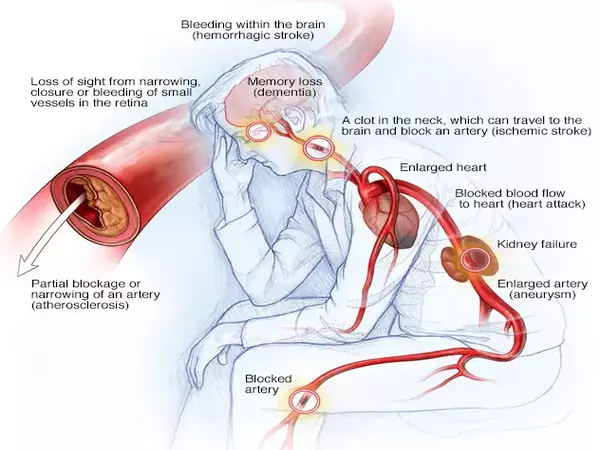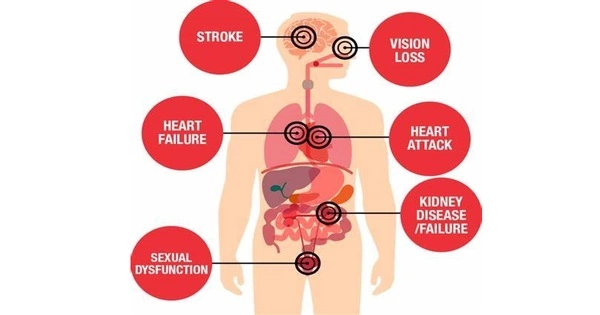High blood pressure, often known as hypertension, is a substantial risk factor for heart health concerns whether a person is lying down or standing. Certain illnesses and causes, however, might influence blood pressure while lying down and may be associated with an increased risk of heart-related disorders.
An analysis of data from a long-running study of over 11,000 adults from four diverse communities in the United States found that adults who had high blood pressure while both seated upright and lying supine (flat on their backs) had a higher risk of heart disease, stroke, heart failure, or premature death compared to adults who did not have high blood pressure while both upright and supine.
People who had high blood pressure when resting flat on their backs were more likely to have a heart attack, stroke, heart failure, or die prematurely, according to new research to be presented at the American Heart Association’s Hypertension Scientific Sessions 2023, which will be held in Boston from September 7 to 10, 2023. The meeting is the foremost scientific exchange focusing on recent advancements in basic and clinical research on hypertension and its links to heart and renal illness, stroke, obesity, and genetics.
Our findings suggest people with known risk factors for heart disease and stroke may benefit from having their blood pressure checked while lying flat on their backs. Efforts to control blood pressure during the day may help reduce blood pressure while sleeping.
Duc M. Giao
The autonomic nerve system regulates blood pressure in various body postures; nevertheless, gravity can cause blood to pool when sat or erect, and the body is occasionally unable to appropriately regulate blood pressure whether lying, seated, or standing, according to the authors.
“If blood pressure is only measured while people are seated upright, cardiovascular disease risk may be missed if not measured also while they are lying supine on their backs,” said lead study author Duc M. Giao, a researcher and a 4th-year M.D. student at Harvard Medical School in Boston.
The researchers evaluated health data from the longitudinal Atherosclerosis Risk in Communities (ARIC) study for 11,369 participants to examine body position, blood pressure, and heart health risk. The supine and seated blood pressure data were collected during the recruitment phase, ARIC visit 1, which occurred between 1987 and 1989. Participants’ blood pressure was recorded while they were briefly lying down at a clinic. At the time, the average age of participants was 54 years old; 56% of the group identified as female; and 25% identified as Black race. Participants in this study were followed for an average of 25 to 28 years, up to and including ARIC visit 5, which included health data obtained between 2011 and 2013.

The researcher’s findings included:
- 16% percent of participants who did not have high blood pressure — defined in this study as having top and bottom blood pressure measures greater than or equal to 130/80 mm Hg — while seated had high blood pressure while lying supine (flat on their backs), compared to 74% of those with seated high blood pressure who also had supine high blood pressure.
- In comparison to participants who did not have high blood pressure while seated and supine, participants who had high blood pressure while seated and supine had a 1.6 times higher risk of developing coronary heart disease; a 1.83 times higher risk of developing heart failure; a 1.86 times higher risk of stroke; a 1.43 times higher risk of overall premature death; and a 2.18 times higher risk of dying from coronary heart disease
- Participants who had high blood pressure while supine but not while seated had similar elevated risks as participants who had high blood pressure while both seated and supine.
- Differences in blood pressure medication use did not affect these elevated risks in either group.
“Our findings suggest people with known risk factors for heart disease and stroke may benefit from having their blood pressure checked while lying flat on their backs,” said Giao.
“Efforts to control blood pressure during the day may help reduce blood pressure while sleeping. Future study should compare clinic supine blood pressure measures to nighttime measurements. The study’s weaknesses included the fact that it focused on persons who were middle-aged at the time of enrolment, which means the findings may not be as generalizable to older populations, according to Giao.





